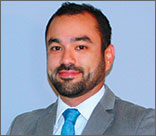Sometimes, the best follow-up plans and intentions are undone by uneven discharge coordination efforts and limited community resources. Some medical institutions have become better at tracking reasons for re-hospitalization and at making post-discharge telephone calls to support good transition to outpatient services. Often, it is necessary to call on nonprofit organizations and public institutions to provide referral and crisis services, but we can always do a better job at offering our patients a comprehensive mental health treatment plan, even from the consultation arena.
Autonomy: Who is in control?
Psychiatry provides varying levels of intervention for acutely mentally ill patients. Laws and criteria for involuntary commitment and the use of psychotropic medication under such circumstances vary from state to state.5
In the consultation-liaison setting, we often co-manage patients with a neuropsychiatric disorder that precludes them from participating fully in medical decisions. Other times, patients come to our attention involuntarily (eg, by way of medical admission) having a high level of premorbid autonomy: They make their own life decisions, choose not to engage in psychiatric treatment, administer their funds (when they have them), and so on.
Complex ethical situations can arise when (1) there is disagreement between physician and patient and (2) payment for care or insurance coverage plays a role in disposition plans or long-term placement. Public institutions might have a modus operandi that allows for extra room to deliberate and keep the treatment conversation going—more so than for-profit health centers, where financial forces can sway providers’ judgment toward autonomy, regardless of what is best for the patient.
Summing up: Let’s be Hippocratic psychiatrists
As many forces continue to influence the way we practice the art and science of medicine and psychiatry, it’s important to pay close attention to ongoing challenges and utilize organized medicine to advocate for better ways of running an effective consultation service in an ethical manner. As a trainee and future psychosomatic medicine psychiatrist, I am committed to starting these conversations wherever I go.
We need novel ways to look at, question, understand, study, and review our clinical practice to effectively tackle these challenges as we continue advancing as a field.


